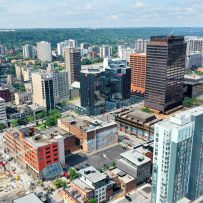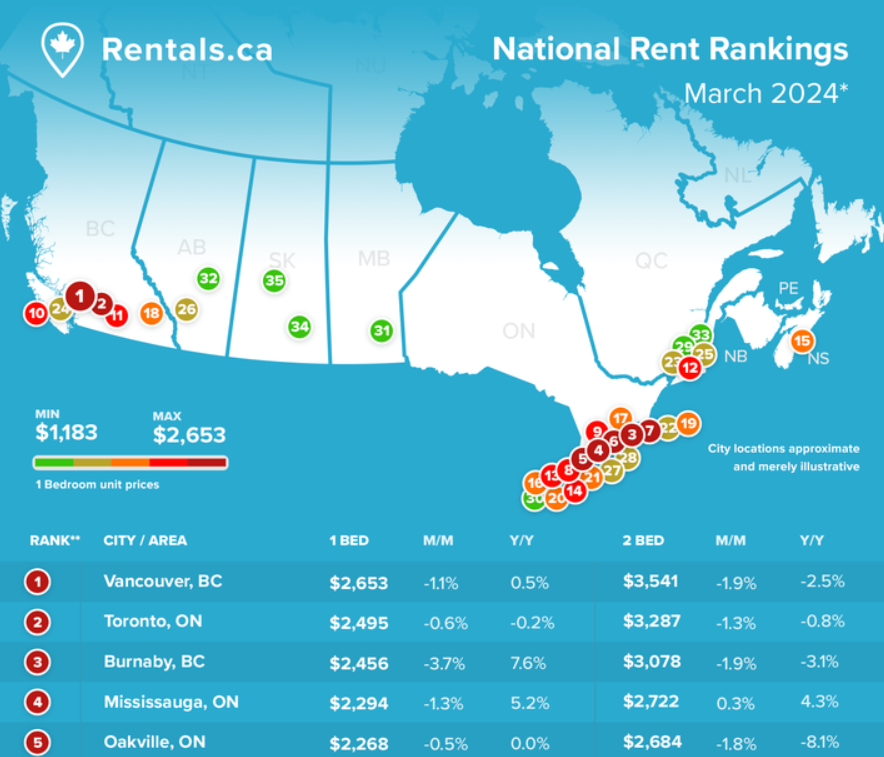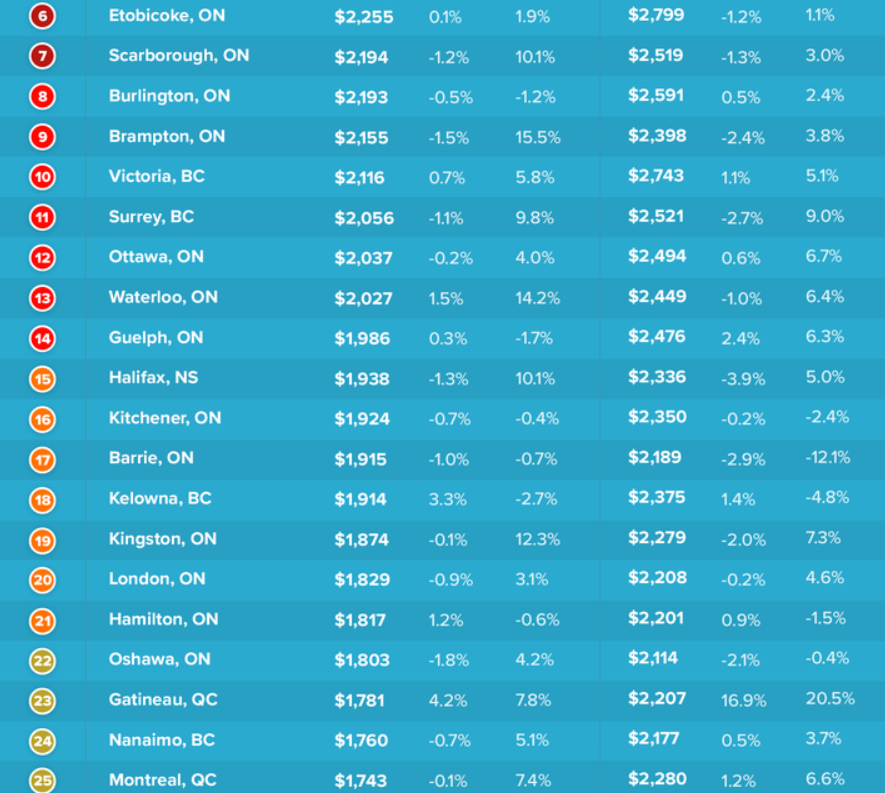RENT UP 10.5% NATIONWIDE BUT STAGNANT IN MANY ONTARIO MARKETS, INCLUDING HAMILTON AND OSHAWA

The average asking rent for all property types in Canada increased 10.5 per cent annually to $2,193 per month, the fastest annual growth since September 2023 according to Rentals.ca and Urbanation’s latest National Rent Report.
Compared to February 2022, just before the onset of interest rate increases by the Bank of Canada, average asking rents in Canada have increased by 21 per cent, translating to a $384 per month increase nation-wide.
“The rapid rate of rent growth in Canada is unrelenting,” said Shaun Hildebrand, President of Urbanation. “While some markets are experiencing a softening in rents, others are seeing an acceleration, with an underlying theme that rental supply remains grossly insufficient to meet current levels of demand.”
Markets with the most expensive housing prices in Ontario and British Columbia, however, did not follow the national trend, posting the slowest growth in asking rents for purpose-built and condo apartments in February, with annual increases of one and 1.3 per cent, respectively.
Canada’s largest and most expensive cities, Vancouver and Toronto, saw declines in asking rents compared to a year ago. The average asking rent for purpose-built and condo apartments decreased by 3.3 per cent annually in Vancouver and 1.3 per cent annually in Toronto, reaching $3,017 and $2,803, respectively. Meanwhile, Edmonton emerged as the leader for rent increases among Canada’s largest cities, posting annual growth of 17.3 per cent to reach an average of $1,489 for purpose-built and condo apartments.
Rents in Hamilton and Oshawa – two markets at either end of the Golden Horseshoe which traditionally have softer rental prices then their GTA neighbours, saw minimal year-over-year increases, if at all.
One-bedroom units in #21-ranked Hamilton rose 1.2 per cent from January to $1,817 but fell 0.6 per cent year-over-year. #22-ranked Oshawa’s one-bedroom apartments fell 1.8 per cent in February to $1,803 but rose 4.2 per cent from the previous February.
For two-bedrooms, Oshawa saw their average rental rates fall 2.1 per cent month-over-month to $2,114 – earning it a #25 ranking – and 0.4 per cent year-over year. Hamilton was ranked #24 for two-bedroom units at $2,201 per month. The number was up 0.9 per cent from January and down 1.5 per cent year-over year.
Purpose-built rental apartments saw a 14.4 per cent jump across the country in annual growth, reaching an average of $2,110 in February. Similarly, condominium rental apartments saw a five per cent year-over-year increase, with average asking rents of $2,372, while apartments in houses averaged asking rents of $2,347, rising by 5.3 per cent annually.
In smaller markets, Quebec led rent growth among small-to-mid-sized cities, with notable increases observed in Pointe-Claire (+27.9 per cent), while Lloydminster led rent growth in Alberta (+25.7 per cent) and Langley saw the fastest rising rents in B.C. (+20.3 per cent).
Vancouver led all cities for both one-bedroom ($2,653) and two-bedroom units ($3,541), with Toronto maintaining second spot at $2,495 and $3,287, respectively. Burnaby, Mississauga and Oakville round out the rest of the top five.
The National Rent Report charts and analyzes monthly, quarterly and annual rates and trends in the rental market on national, provincial, and municipal levels across all listings on the network for Canada.
Rentals.ca Network data is analyzed and the report is written by Urbanation, a Toronto-based real estate research firm providing in-depth market analysis and consulting services since 1981.


Story by: InTheHammer


